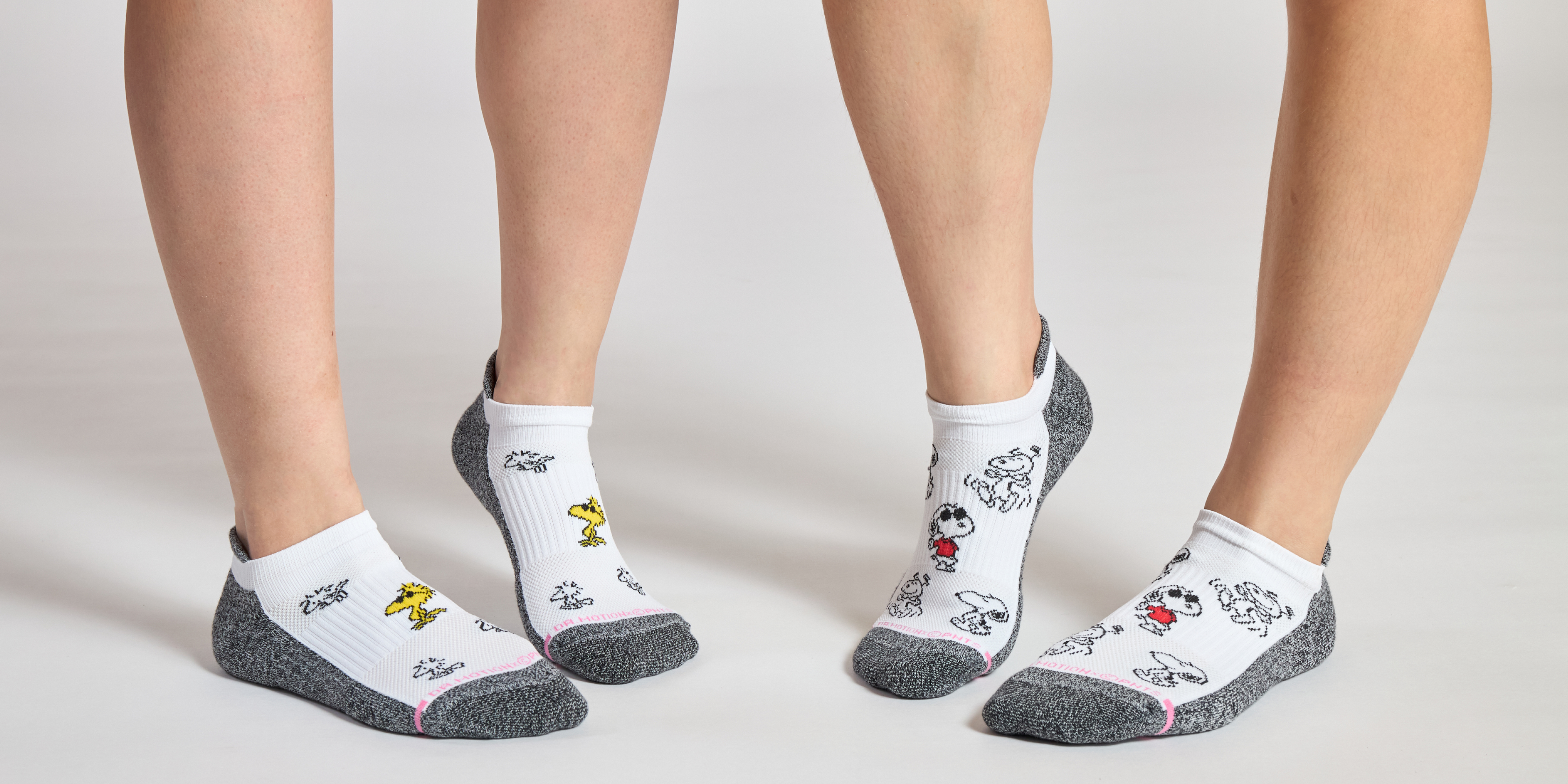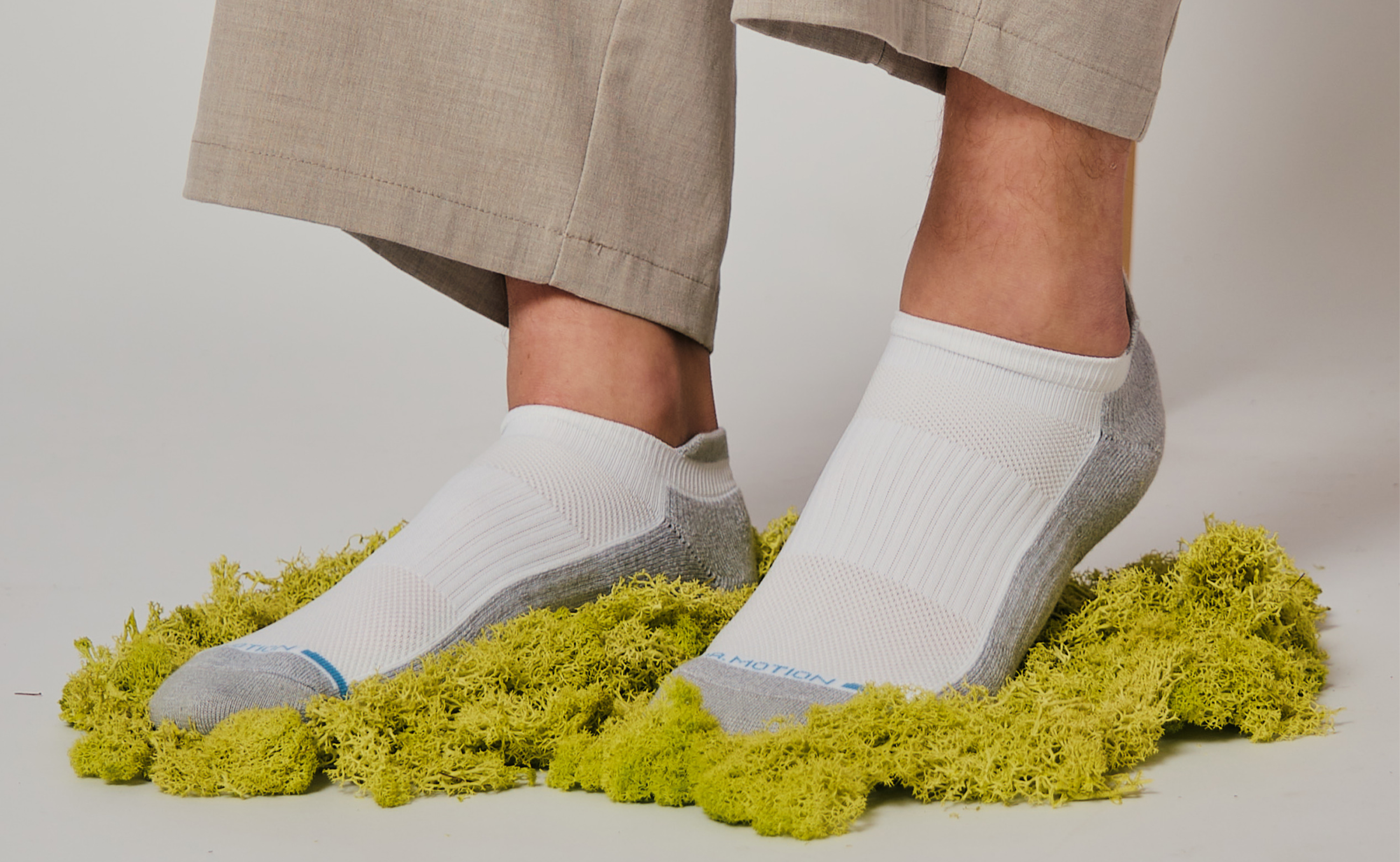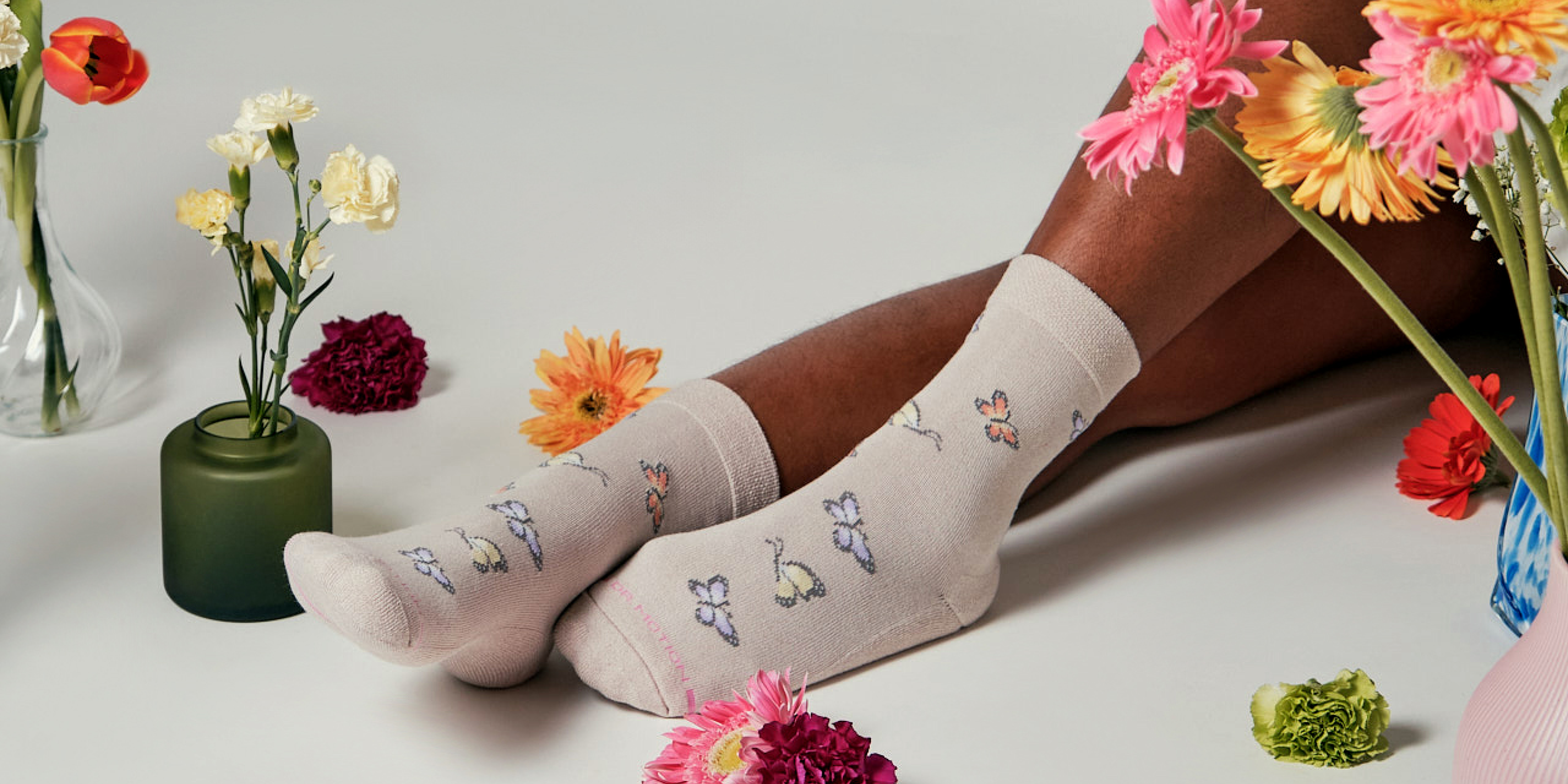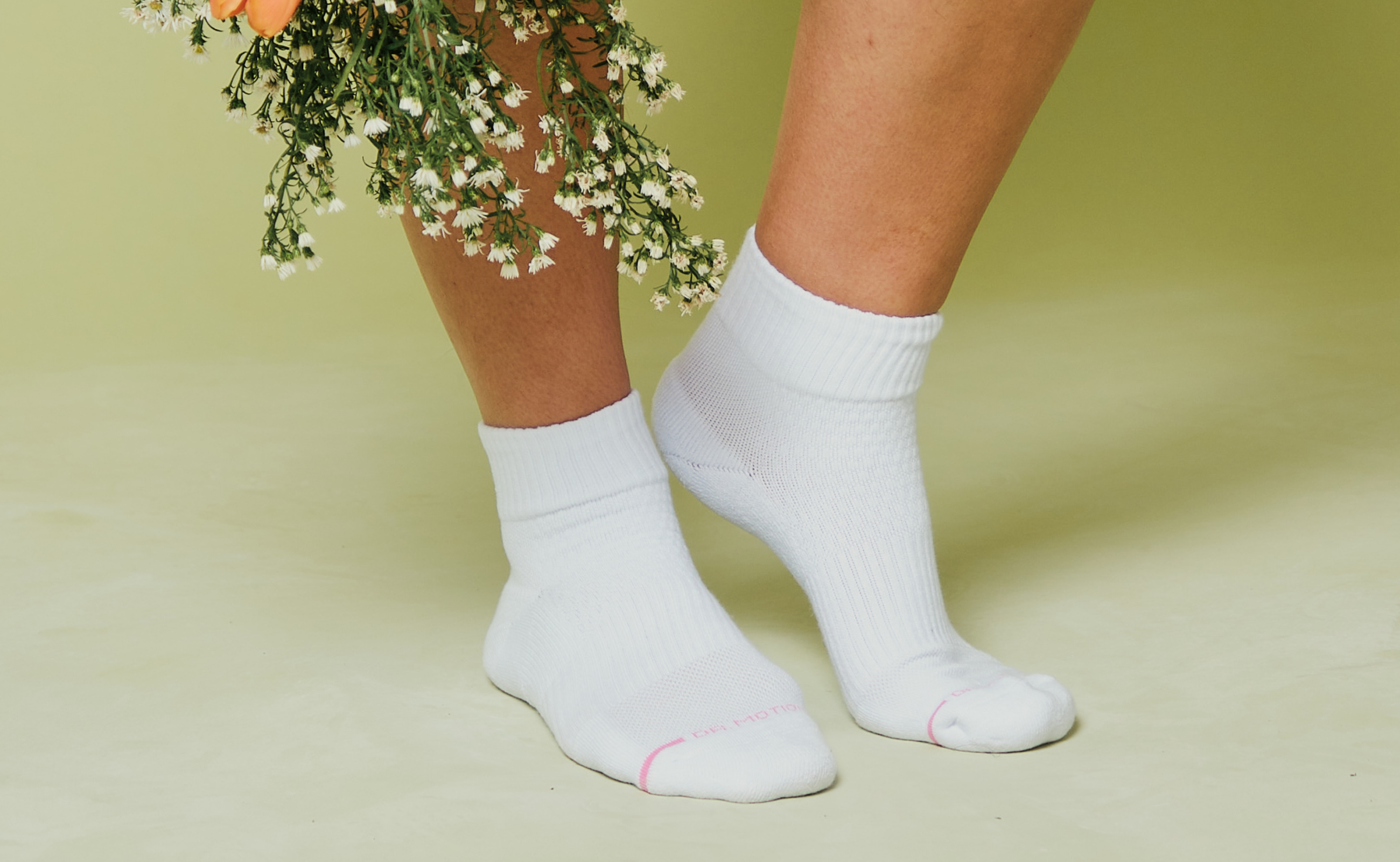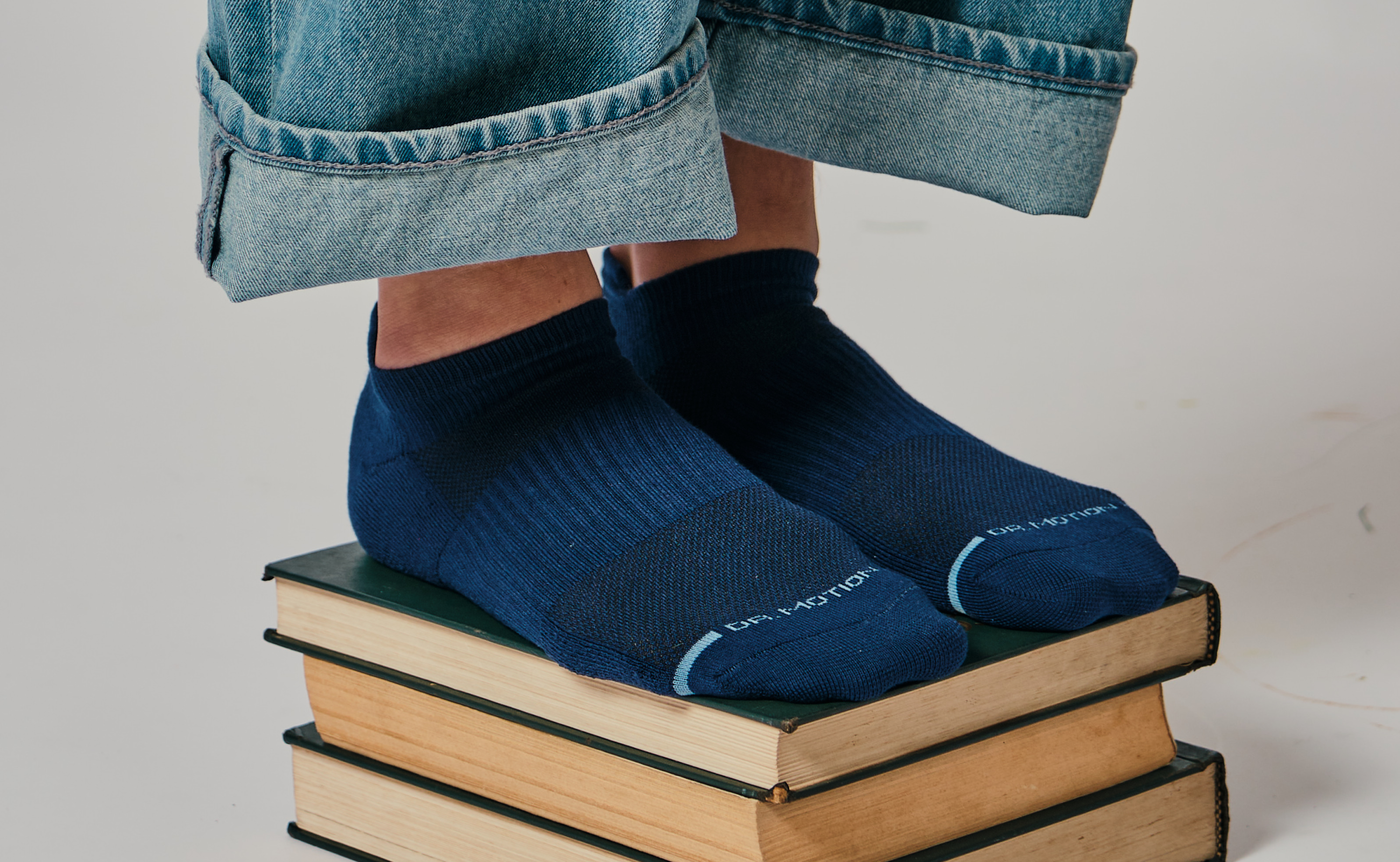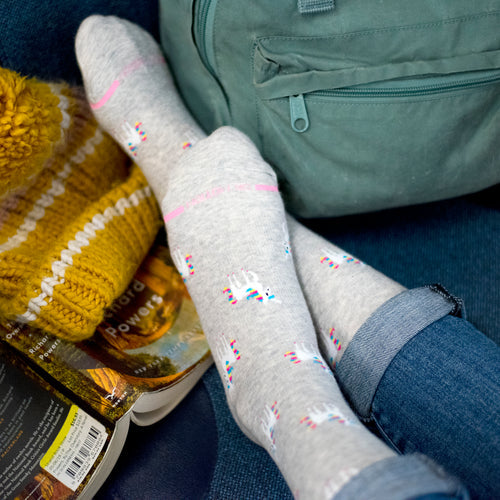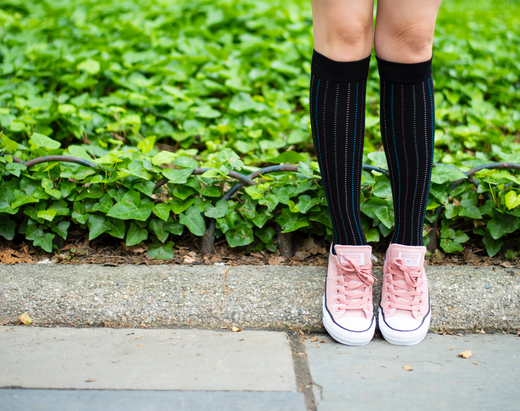Should You Wear Compression Socks While Running?
If you are a serious runner, picking up the sport again or trying to stay fit, you may have heard of compression socks for running. You may have wondered, “Why wear compression socks when running?” Some experts say wearing graduated compression socks while you are running helps increase blood circulation and flow. Other experts say knee high compression socks assist with recovery between runs. Both groups of experts turn out to be right, but the real reason runners wear graduated compression socks is something the experts don't tell you.
SPORTS COMPRESSION SOCKS AND RUNNING
What do compression socks have to do with running? For that matter, what are compression socks?
A compression sock is a garment that places gentle pressure all around a limb to assist venous return. It looks something like a sleeve for the leg but with fabric around the toes. The heart sends oxygen-rich blood out to the rest of the body through arteries. Oxygen-depleted blood returns to the heart and lungs through veins.
Blood pressure is higher in the arteries, going out from the heart, assisted by the force of gravity. Blood pressure is lower in the veins, going back to the heart, working against gravity. Compression completely around the circumference of the leg compensates for the forces of gravity and resistance in the veins. This is why so many athletes experiment with compression socks running routines as part of their training. Many also explore whether do compression socks help with running in terms of both endurance and recovery.
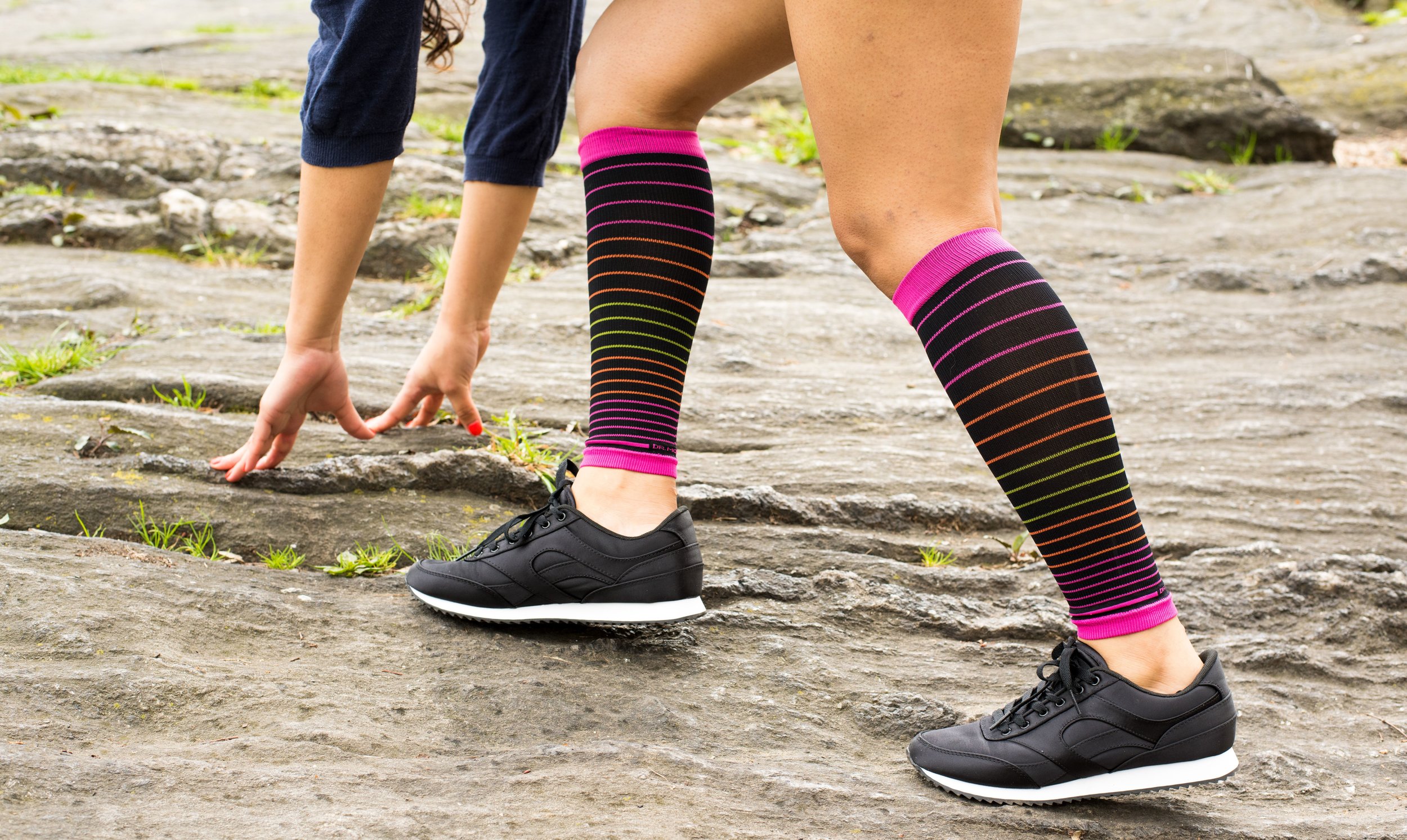
BUT WHAT ARE THE BENEFITS OF COMPRESSION SOCKS FOR RUNNERS?
When runners wear compression socks, the heart does not have to work as hard to pump blood against the force of gravity. Pulse rates don't go up as fast. Muscles in the leg receive more oxygen. This means that you can run harder and faster before you begin to feel a burn. Increased circulation to muscle doesn't just reduce production of lactate. By providing more oxygen to muscles, it powers down the muscle's response to stress. Muscles don't get as tight or as tense, thus are less likely to go into spasm -- perhaps allowing you to run faster and farther.
Compression socks for men also keep the calf muscle from jiggling around. Acting through the fascia, they reduce oscillation in the thigh and even over the abdomen. Reducing muscle oscillation increases muscle efficiency. Compression empowers runners to power harder and faster, even while having to fight muscle oscillation. Compression enables effort to be directed straight ahead rather than to oscillation. These are the most common benefits of compression socks for running.
IS THERE ANY PROOF OF COMPRESSION SOCKS RUNNING BENEFITS?
For competitive runners, winning is often about very small differences. Hundredths of a second separate first place from second place.
For scientists, proof is always about statistical significance. Statistical significance is achieved with big changes and large numbers of measurements.
Tests of compression socks have not found that they make statistical changes in running performance. That's not possible when you are working with tiny groups (less than 20 athletes) of elite athletes. But scientific tests of compression socks have found that they make measurable differences. For example, here are the findings of a study of 12 well-trained runners by the Australian Institute of Sport and the University of Tasmania.
-
Compression socks decrease the cross-sectional area of the lower leg by about one-tenth of a square centimeter. There is no danger of leaving marks from this level of pressure.
-
Compression socks increased VO2, the runners' intake of oxygen, by an average of about six-tenths of one percent. All of the measurements showed positive benefits of compression socks.
-
Compression socks reduced the reported level of muscle soreness by 20 percent at the second workout. This finding was statistically significant even with a very small group of runners.
The study leaves open the possibility that wearing sleeve-like calf compression sleeve gives runners a tiny competitive edge in training and competition. But the real compression socks running benefits is that they enhance recovery. Wearing running compression socks makes it easier to train for winning performance, getting you back on the trail or track in tip-top shape.
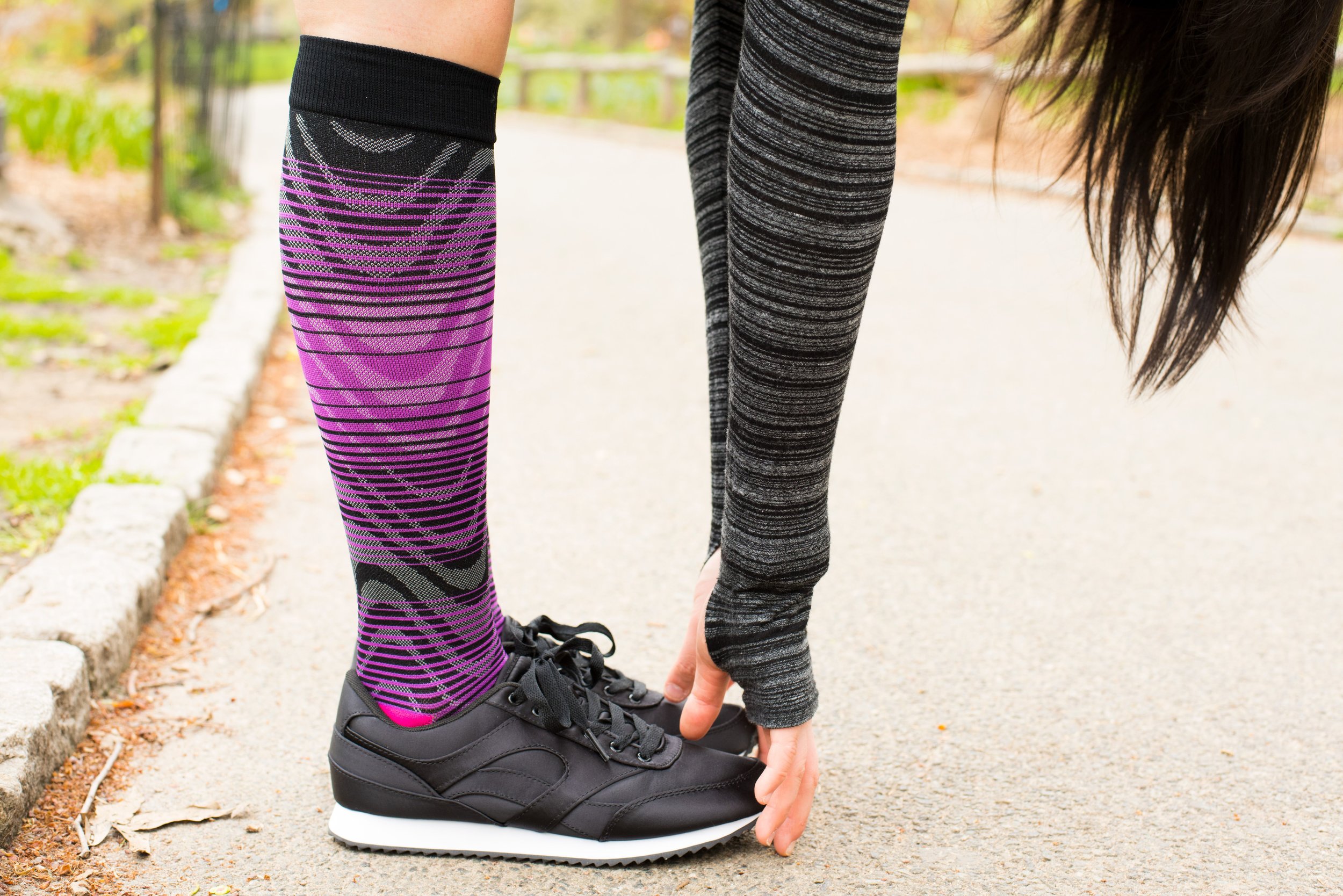
WHAT ARE THE BEST COMPRESSION SOCKS FOR RUNNING?
What we know about the qualities of the best compression socks for running comes from scientific studies like a British study of compression socks versus transcutaneous electroneural stimulation published in the International Journal of Angiology. Compression socks for runners need to be:
-
Graduated, that is, higher pressure at the toe and progressively lower pressure up to the calf
-
Relatively low-pressure, under 15 pounds (about 40 percent of the pressure of a compression sock for varicose veins)
-
Comfortable
OK, so sports scientists didn't really test how comfortable their compression socks were with the elite athletes in their labs. But if a compression sock isn't comfortable, you won't wear it, and if you don't wear it, it won't help you with your athletic performance.
Dr. Motion compression socks are easy to wear. The band at the top is non-binding. The toe seam is smooth. They are anti-microbial. The reality of locker rooms is that they have lots of germs. Dr. Motion socks use fabrics that fight germs. And they also have an anti-odor weave.
Should you wear compression socks while you are running? Yes. And they should be from Dr. Motion. We offer both men’s compression socks and women’s compression socks, so that you’ll have socks designed specifically for you. Compression socks may give you a tiny competitive edge that makes a difference in running any given race. But they will make it a lot easier to keep doing the road work that makes you stronger and faster for every race.
Disclaimer: This article provides information solely for educational purposes, including but not limited to text, graphics, images, and other materials contained herein. This article is not intended to substitute for professional medical advice, diagnosis, or treatment. Always seek the advice of your physician or another qualified healthcare provider with any questions you may have regarding a medical condition.


